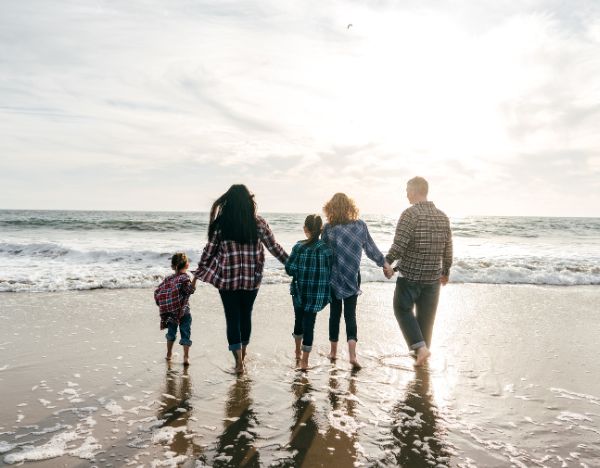Empowering Our Youth: A Wake-Up Call for Eugene Parents
Eugene Parents, Do Better
Recently, we’ve learned that many students at Churchill High School, particularly those in the LGBTQ+ community, are experiencing profound despair—even to the point of feeling hopeless—over the election of President Trump. This news isn’t just heartbreaking; it’s infuriating.
To the parents who have allowed this level of despair to take root in their children, this message is for you: How. Dare. You.
Our Role as Parents: Building Resilience, Not Fear
Parenting is one of life’s most serious responsibilities. At its core, being a parent means preparing your child for the real world—a world that is often harsh, unpredictable, and, yes, unfair. Our job as parents isn’t to wrap our children in a bubble that shelters them from every disappointment. It’s to build resilience in them, to help them face adversity with strength, hope, and an understanding of life’s complexities.
By failing to teach resilience, some parents are inadvertently harming their children. You may have poured so much fear and hatred into the image of a single politician that you’ve inadvertently deprived your child of the ability to see beyond one moment in time. If your child believes their entire future is threatened by the result of a single election, ask yourself how you contributed to this fear. This belief is not only distorted; it’s crippling. When children are led to feel hopeless over outcomes beyond their control, they lose a vital skill: the ability to adapt and find meaning in adversity.
The Harm of Neglecting What it Means to Be a Parent

If you have told your children that Trump’s presidency means the end of democracy or the end of their personal safety, you’ve failed to provide a balanced view of reality. If your own hatred for a public figure has seeped into your child’s life to the extent that they are questioning their worth, shame on you. Children are perceptive. They absorb more than we realize, and if all they’ve heard are messages of despair and defeat, it’s no wonder they’re feeling trapped.
This isn’t to say that parents shouldn’t express their opinions or their own fears about politics. But there is a difference between educating children about the challenges of the world and instilling a sense of doom that robs them of hope. If you’ve only shown anger and panic without grounding your child in the stability of their own potential and the resilience of our system, you’ve left them adrift.
How You Can Do Better
Here’s what it means to be a parent: it means you’re the one responsible for nurturing a child’s inner strength. You’re their foundation. In a world that is often uncertain and unkind, your job is to give them the tools to face it anyway, to trust in their own value, and to see that setbacks—whether personal or political—are temporary.
When parents fail in this role, children are left feeling vulnerable, and they don’t have the experience to see a path forward. By allowing despair to overshadow hope, you’re robbing them of the most basic foundation of life: the belief that tomorrow can be better. In essence, you’re neglecting what it means to be a parent. Raising resilient, adaptable, and hopeful children is your highest duty, and without it, their lives are that much harder.
Here are some actionable steps for you:
- Teach Perspective: Help your children understand that life has highs and lows, and no single event defines their future. Teach them about the structure of government, term limits, and the checks and balances that prevent any one person from having absolute power. It’s essential that they see life as a journey with ups and downs, and elections are just one piece of that larger puzzle.
- Model Resilience: Show your children that you can accept and process disappointment without losing hope. They need to see that setbacks don’t mean defeat. Even if you don’t like the election outcome, demonstrate that life goes on, and you have faith in both the system and their ability to thrive regardless of who’s in power.
- Encourage Open Dialogue: Create an environment where your children can express their fears, but don’t fan the flames of panic. Encourage them to think critically, to ask questions, and to understand that different people hold different beliefs. This will build emotional resilience and prepare them for a world that won’t always agree with them.
- Instill Hope and Empowerment: Remind your children that they have power over their own lives. When the world seems chaotic, children need to hear that they can still make a difference, in their own lives and in the lives of others. Give them the tools to get involved constructively—whether through volunteer work, advocacy, or simply being kind.
- Emphasize Self-Worth Independent of Politics: Above all, let them know that their worth isn’t defined by who’s in office. A president’s term is temporary; their value is not. Show them that, no matter what happens in politics, they are loved, they are capable, and they are powerful individuals.
A Final Call to Eugene Parents: Rise to the Challenge
It’s time to reconsider how we approach these conversations with our children. Instead of fueling fear and division, let’s teach them about resilience, hope, and the strength to adapt. Show them that their lives and potential are greater than any one election or leader.
Our children need us to model calm, to show that setbacks are temporary, and to remind them that they have the power to shape their own lives. Let’s commit to raising a generation that can handle adversity with courage, compassion, and open minds. They deserve to learn that they are capable, their voices matter, and their future is bright—no matter who’s in power.
As parents, we owe it to our children to help them navigate a complex world with resilience, grounded perspective, and hope. Let’s show them what it means to thrive, no matter what challenges may come. Let’s be the foundation they can rely on, a reminder that tomorrow holds promise, and that they are strong enough to face whatever comes next.


